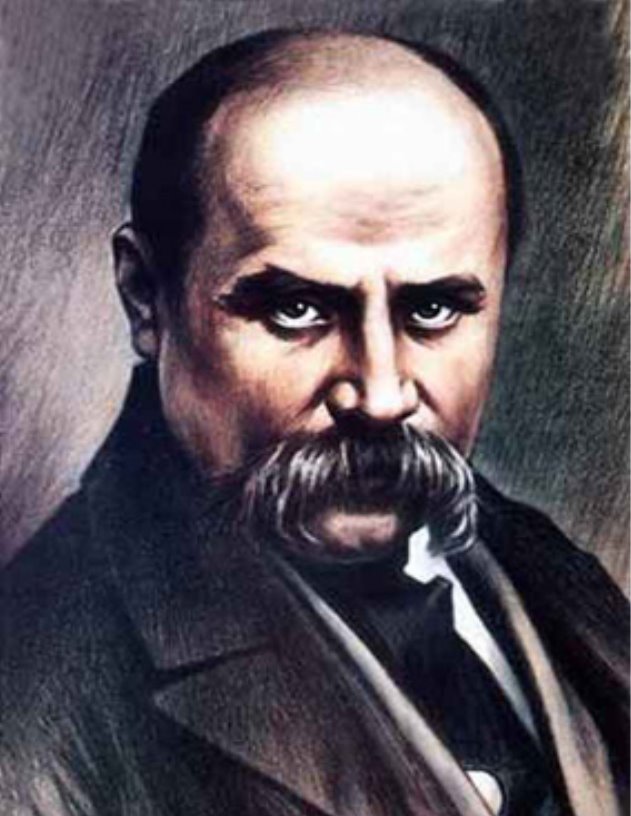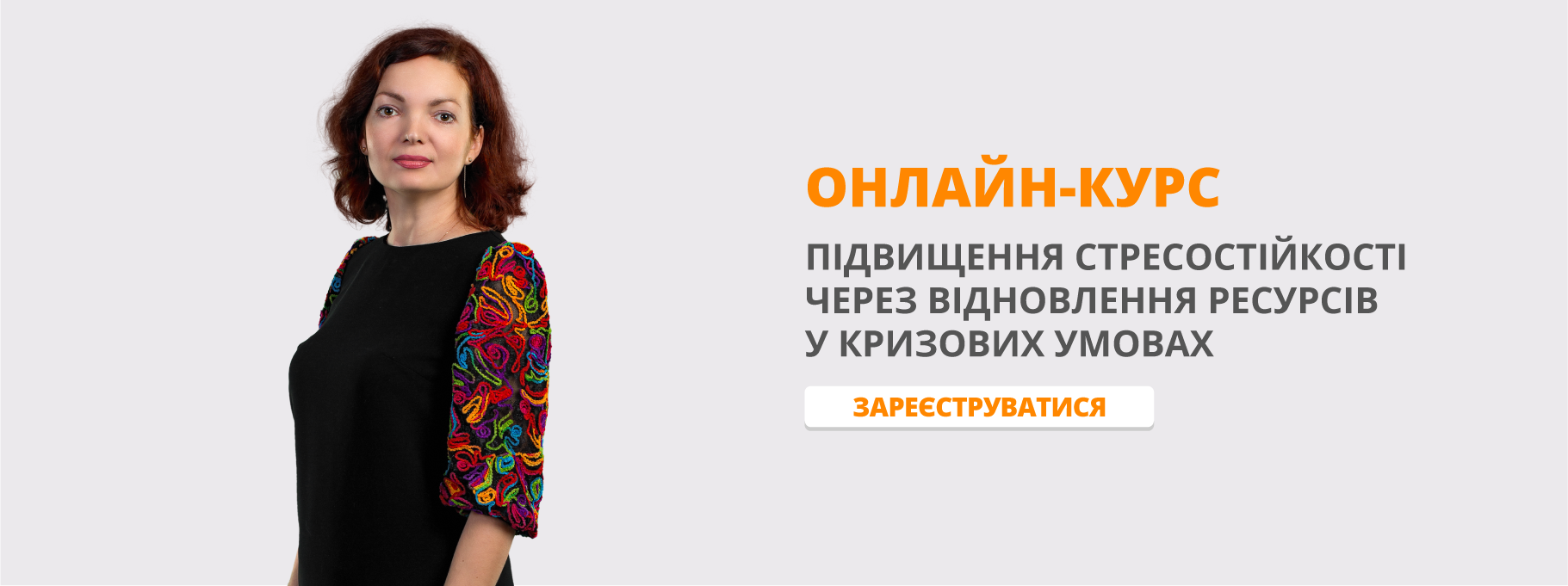Розробка уроку з англійської мови в 11 класі на тему "Тарас Шевченко - навіки!"
Тема: Taras Shevchenko – forever!
Цілі уроку
практина: поглибити знання школярів про багатогранний талант Т. Шевченка, ушанування його особистості в англомовному та україномовному світі;
освітня: розширити кругозір учнів;
розвивальна: розвивати полікультурну компетентність, творчі здібності учнів;
виховна: виховувати ціннісне ставлення до творчої спадщини Великого Кобзаря.

Розробка уроку в 11 класі

Тема: Taras Shevchenko – forever!
Цілі уроку
практина: поглибити знання школярів про багатогранний талант Т. Шевченка, ушанування його особистості в англомовному та україномовному світі;
освітня: розширити кругозір учнів;
розвивальна: розвивати полікультурну компетентність, творчі здібності учнів;
виховна: виховувати ціннісне ставлення до творчої спадщини Великого Кобзаря.
Тип уроку: комбінований.
Обладнання: портрет Тараса Шевченка, мультимедійна дошка, диск із презентацією, дидактичний матеріал.
Література: * Поліщук Р.П. Reasons to Read English. Сучасні тексти для читання. – Х.: ТОРСІНГ ПЛЮС, 2007. – 144 с.
* Шевченко Т. Кобзар. Повна ілюстрована збірка. – Харків. – 2012. – 720 с.
* http://www.dnipro-ukr.com.ua/scenariy-5864.html
* http://ru.wikipedia.org/wiki/
* http://www t-shevchenko.name›uk/Painting/Autoportraits.html
* http://eureka.ucoz.ua/publ/186-1-0-673
* http://dzvinua.blogspot.com/2012/04/blog-post_1414.html
Хід уроку:
І. Організаційна частина уроку
1. Привітання й повідомлення теми і мети уроку
Greeting and Aim
T: Good morning, children!
Cl: Good morning, teacher!
T: How are you?
Cl: We are fine / Ok.
T: Are you ready for the lesson?
Cl: Yes, we are.
T: So, prepare for the lesson.
Who is on duty today?
P1: I am on duty today.
T: Who is absent today?
T: Good morning, pupils!
T: In the USA, Canada, Ukraine we live,
And friendship from behind the ocean we brіng.
Shevchenko's words we also remember
Today and yesterday, tomorrow – forever!
T: Today we’ll talk about the genius of the Ukrainian people, about the creative poet, artist and musician, Taras Shevchenko.
- Уведення в іншомовну атмосферу
Warming up
T: First name adjectives and nouns that can characterize T.H. Shevchenko. What associations can you think of when you hear his name?
/Ss name the words: Kobzar, talent, folk songs, paintings, Academy of Fine Arts, soldier, serfdom, patriotism, love for Ukraine, devotion to his Motherland/
T: Then write them down in the first slide of the computer presentation.
Sample:
Serf
Holy
Energetic
Verse
Creative
Heritage
Etching
Noble
Knight
Opposition
T: Well done. Now I’m going to add some Useful vocabulary. You’ve got it in the leaflets: Serfdom, predetermines, a serf, hagiographies, to ransom, to familiarize, the Destiny, to deny, ballads, liro-epic, to depict, to stylize, to expose, rhythmical, iambic tetrameter, trochaic verses syllabic verse, etching creative heritage, incarnation
Brain Storming – ‘ Jumbled surnames’
T: Here are some (sur)names connected with the great Kobzar. Try to make them out. The notes in brackets will help you.
LLBORUB – ………(painter, academician)
OSHESHKO -……….(Ukrainian painter)
EELHNGGARDT -……….(landowner)
ATHEKANYR -………. (member of T.H. Shevchenko’s family)
Keys: Brullov, Soshenko, Enghelgardt, Katheryna
ІІ. Основна частина уроку
- Перегляд презентації
Viewing of the presentation
(вчитель подає коротку характеристику життя і творчості поета, презентуючи це на мультимедійній дошці)
Taras Shevchenko, born 9 March 1814 in Moryntsi, Kyiv gubernia, died 10 March 1861 in St. Petersburg, Russia, Artist, poet, and national bard of Ukraine.
Born a serf, Shevchenko was orphaned in his early teens and grew up in poverty and misery. He was taught to read by the village precentor and was often beaten for "wasting time" on drawing, for which he had an innate talent. At the age of 14 he was taken by his owner, P. Engelhardt, to serve as a houseboy, and traveled extensively with him, first to Vilnius and then to St. Petersburg. Engelhardt noticed Shevchenko's artistic talent and apprenticed him to the painter V. Shiriaev for four years. During that period he met his compatriots I. Soshenko, Ye. Hrebinka, V. Hryhorovych, and O. Venitslavov. Through them he met the Russian painter K. Briullov, whose portrait of the Russian poet V. Zhukovsky was disposed of in a lottery, the proceeds of which were used to buy Shevchenko's freedom from Engelhardt in 1838.
Shevchenko enrolled in the Academy of Fine Arts in St. Petersburg and pursued his art studies as well as his general education. In 1840 he published his first collection of poems, "Kobzar". It was followed by the epic poem "Haidamaky" (1841) and the ballad "Hamaliia" (1844). In the 1840s Shevchenko visited Ukraine three times. Those visits made a profound impact on him. He was, furthermore, struck by the ravaged state of Ukraine.
After graduating from the Academy (1845) he became a member of the Kyiv Archeographic Commission. That position gave rise to extensive travels during which he sketched a lot, and wrote some of his most satirical and politically subversive poems ("Dream", "Caucasus" and others).
In 1846 Shevchenko came to Kyiv and joined the secret Cyril and Methodius Brotherhood. A denunciation resulted in the arrest of the members of the brotherhood. Shevchenko was arrested in 1847 and sent as a private to the Orenburg special corps in a remote area of the Caspian Sea. Tsar Nickolas I himself initiated the sentencing order preventing the prisoner from writing and painting. But Shevchenko managed to continue doing both. .
Shevchenko was released in 1857 but he was not allowed to live in Ukraine. He lived in St. Petersburg and was buried there, but two months afterward his remains were transferred to the Chernecha Hill near Kaniv. Ukraine.
Shevchenko's literary output consists of one middle-sized collection of poetry ("Kobzar"); the drama "Nazar Stodolia"; two dramatic fragments; nine novelettes; and over 250 letters.
Although Shevchenko is seen mainly as a poet, he was also a highly accomplished artist. There are 835 works extant from that domain of his creativity. Another 270 are known but have been lost. Shevchenko painted over 150 portraits, 43 of them are self-portraits. He also painted numerous landscapes which recorded the architectural monuments of Ukraine. He was also very proficient in watercolor, aquatint, and etching.
- Двомовна поетична сторінка «Шевченкове слово живе і здорове»
Bilingual Verses "Shevchenko's word is alive and healthy"
Т:English presented Shevchenko to the world reader society the most. More than 80 translators worked at the report of Shevchenko’s word to the English-language reader. Almost all poetries of Shevchenko are translated into English. Many of them have a few interpretations.
(Звучить уривок з балади «Причинна» українською та англійською мовам, декламація супроводжується візуальним рядом (див. мультимедійну презентацію).
Реве та стогне Дніпр широкий... The mighty Dnieper roars and bellows...
Реве та стогне Дніпр широкий, The mighty Dnieper roars and bellows,
Сердитий вітер завива, The wind in anger howls and raves,
Додолу верби гне високі, Down to the ground it bends the willows
Горами хвилю підійма. And mountain-high lifts up the waves.
І блідий місяць на ту пору The pale-faced moon picked out this moment
Із хмари де-де виглядав, To peek out from behind the cloud,
Неначе човен в синім морі, Like a canoe upon the ocean
То виринав, то потопав. It first tips up, and then dips down.
Ще треті півні не співали, The cocks have not proclaimed the morning
Ніхто нігде не гомонів, There’s not a sound as yet of man
Сичі в гаю перекликались, The owls in glades call out their warnings,
Та ясен раз у раз скрипів. And ash-trees creak and creak again.
Т:This verse after the amount of translations into English is inferior to only «Testament» that has 20 variants. A poetry that you will hear now has 11 English-language interpretations.
T: And now let’s hear the poem “Beside the Cottage”
( супроводжується візуальним рядом (див. мультимедійну презентацію).
Садок вишневий коло хати Beside the Cottage
Садок вишневий коло хати, Beside the cottage cherry-trees are swinging,
Хрущі над вишнями гудуть, Above the cherries may-bugs winging,
Плугатарі з плугами йдуть, Ploughmen with their ploughs are homeward heading,
Співають ідучи дівчата, And lassies as they pass are singing,
А матері вечерять ждуть. While mothers wait with supper ready.
Сім’я вечеря коло хати, Beside the cottage all the family’s eating,
Вечірня зіронька встає. Above, the evening star the sunset’s greeting.
Дочка вечерять подає, The evening meal the daughter serves around,
А мати хоче научати, When mother chides, from where she’s seated,
Так соловейко не дає. Her voice by singing nightingales is drowned.
Поклала мати коло хати Beside the cottage mother’s lullabying
Маленьких діточок своїх; Till little ones in golden slumbers’re lying;
Сама заснула коло їх. She herself beside them falls asleep.
Затихло все, тілько дівчата All is quiet, only the girls are vying
Та соловейко не затих. With nightingales and can’t their quiet keep.
T:Shevchenko's life was the theme of his poems.
(Шевченкове життя було темою його поетичних творів).
T: This verse is a record-holder of English-language translations. Many translators addressed to this poetry, and all of them marked that it is extraordinarily difficult to do it. John Weir translated most accurately, that recreated difficult polyphony of feeling-appeals clearly enough, saving brave tone of exposition.
(Декламування вірша «Заповіт» двома мовами, супроводжується візуальним рядом (див. мультимедійну презентацію).
Заповіт My Testament
Як умру, то поховайте When I am dead, then bury me
Мене на могилі, In my beloved Ukraine,
Серед степу широкого, My tomb upon a grave mound high
На Вкраїні милій, Amid the splendid plain.
Щоб лани широкополі, So that the fields, the boundless steppes,
І Дніпро, і кручі The Dnieper’s plunging shore
Було видно, було чути, My eyes could see, my ears could hear
Як реве ревучий. The mighty river roar.
Як понесе з України When from Ukraine the Dnieper bears
У синєє море Into the deep blue sea
Кров ворожу…отойді я The blood of foes…then will I leave
І лани, і гори – These hills and fertile fields –
Все покину і полину I’ll leave them all and fly away
До самого Бога. To the abode of God, аnd then I’ll pray…
Поховайте та вставайте, But till that day I nothing know of God.
Кайдани порвіте Oh bury me, then rise ye up
І вражою злою кров’ю And break your heave chains,
Волю окропіте. And water with the tyrants’ blood
І мене в сім’ї великій, The freedom you have gained.
В сім’ї вольній, новій, And in the great new family,
Не забудьте пом’янути The family of free,
Незлим тихим словом. With a softy spoken, kindly words
Remember also me.
T: We hope, that the new translations of «Kobzar» will appear. (Сподіваємося, що в майбутньому ще з'являться англомовні переклади «Кобзаря»).
- Музична сторінка «Наша дума, наша пісня не вмре, не загине!»
Music page "Our thought, our song will not die, will not die!"
T: We want to present a no less popular song to the words of verse "Testament" that became basis for the music pieces of many composers. Suggest to listen a song "Testament" by English. There is tradition - to listen singing of "Testament" standing. Therefore stand up and listen "Testament".
- Сторінка образотворчого мистецтва. Заочна екскурсія на виставку «Картини Тараса – наша гордість і окраса»
Page of fine art. Correspondence tour of the exhibition "Painting of Taras - our pride and glory"
T: We know also, that Taras Shevchenko is a world known artist. We would like to know more about his artistic works. Shevchenko was an outstanding poet and a highly accomplished artist. There are 835 works written by him, although 270 are known to have been lost. His collection also contains over 150 portraits, 42 self-portraits. There are many landscapes, watercolours and etchings.
(Продовження перегляду презентації)
5. Віртуальна екскурсія «Пам'ятники Тарасові Шевченку в Україні
та англомовних країнах»
Virtual tour of "Monument to Taras Shevchenko in Ukraine and English- speaking countries "
Т: And we want to tell to you about that, how people in the English speaking countries honour memory of the genius son of the Ukrainian earth, that as the first in the world protected oppressed people both in his poetic works and in his pictures.
(вчитель за допомогою мультимедійної презентації розповідає про найцікавіші пам'ятники Шевченку в Україні: у Харкові, Києві, Донецьку, с. Шевченкове, Звенигородці).
6. Робота в групах
Group project – quiz
T: I’ve prepared a quiz. If you were attentive you’ll manage to answer the questions.
- Shevchenko was still a child when he lost his parents. A) True B) False
- Shevchenko was born in the family of a A) Cossack; B)n serf; C) poor farmer D) landowner.
- Shevchenko was born on A) April, 10.03.1837; B) April, 19.03.1861; C) April, 9.03.1814 (new style).
- Shevchenko was good at: A) versifying; B) singing; C) painting.
- Shevchenko dreamed of becoming a A) poet; B) composer; C) artist.
- What stories impressed little Taras most of all? A) kobzars’; B) about ghaidamaky; C) about iron columns.
- Shevchenko served for his landowner as a A) Cossack; B) groom; C) cook.
- Who introduced T.H. Shevchenko to Ukrainian Diaspora in St Petersburg? A) Serov; B) Perov; C) Soshenko.
- To ransom Shevchenko K.Brullov painted the portrait of A) V. Zhukovskyi; B) Yevhen Hrebinka; C) Enghelgardt.
- Every year T. Shevchenko got…. A)silver medals; B) gold medals; C) diplomas for his medals.
7. Релаксація
Reflection
T: Well done.I think you have worked a lot while collecting the material .And now try to be poets. Let’s write a poem about Taras Hryhorovych Shevchenko. The only difficulty is that you must begin every line with the given letter. Have a look at the project on the blackboard. The first letters of all the lines in your poems are going to form the surname of the great Kobzar.
Shevchenko is our national poet
Humanity is his debtor
Enthusiastic in his work
Violent his anger to the rich
Comfort was strange for him
Hence his compassion to the deprived
Ended was his artistic career
Notwithstanding his talent
Kobzar made his choice
Oh, great Kobzar, we honour you!
8. Перевірка домашнього завдання
Check on Homework
T: What was your home task for today?
P: Our home task for today was to write a letter. (Ex. 6, p.122).
T: So who would like to be the first?
The rest pupils listen to the letter carefully and correct if it is need.
(Вчитель запитує декількох учнів прочитати свої діалоги,
інші – здають свої листи на перевірку)
ІІІ. Заключна частина уроку
- Домашнє завдання
Homework
T: Our time is coming to the end. So put down your hometask for the next lesson – to recite the poem of Taras Shevchenko you like the best. Are there any questions?
- Підведення підсумків уроку
Summarizing
Т: Shevchenko has a uniquely important place in Ukrainian history. He created the conditions that allowed the transformation of the Ukrainian literature into a fully functional modern literature. His influence on the Ukrainian political thought and his role as an inspirer of a modern democratic ideal of renewed Ukrainian statehood are without parallel. His poetry contributed greatly to the evolution of national consciousness among the Ukrainian intelligentsia and people, and his influence on various facets of cultural and national life is felt to this day.
Do you like our today’s lesson?
So, our meeting is over, but Shevchenko will live in our hearts forever!
Thank you for your attention. Good bye!
1


про публікацію авторської розробки
Додати розробку
